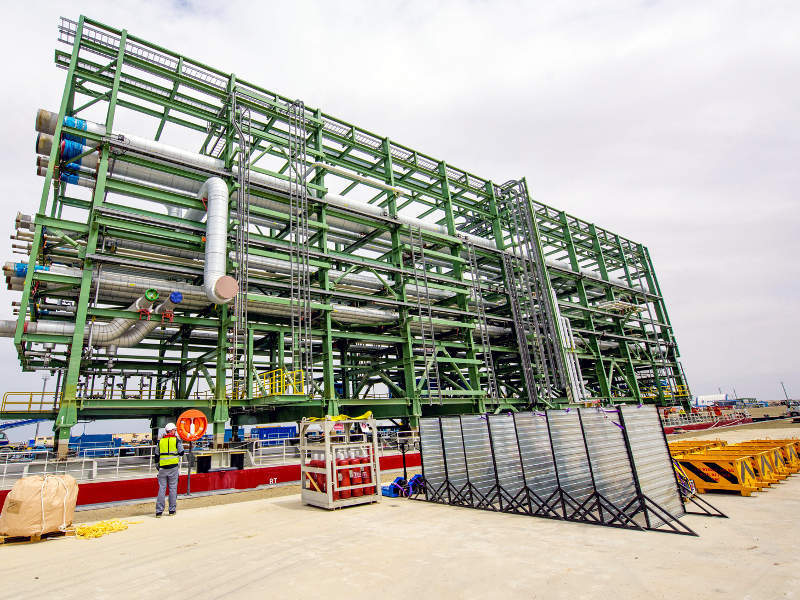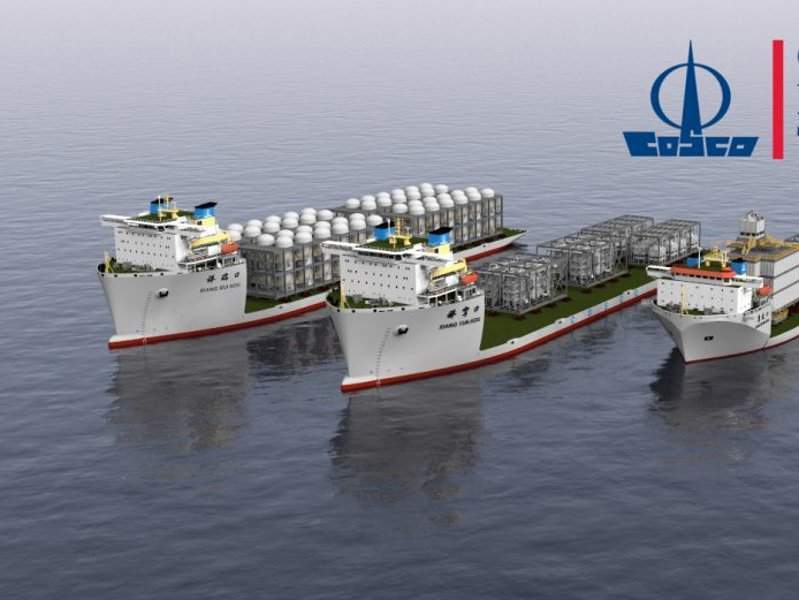Tengiz oil field, one of the world’s deepest supergiant oilfields in production, is being expanded to increase the field’s crude oil production capacity further by 260,000 barrels per day (bpd) to 860,000bpd.
The expansion, which is estimated to cost $36.8bn, will be commercially operational by 2022.
Located in western Kazakhstan, along north-eastern shores of the Caspian Sea, the huge onshore oilfield is owned and operated by Tengizchevroil (TCO), a joint venture between Chevron (50%), KazMunayGas (20%), ExxonMobil Kazakhstan (25%) and LukArco (5%).
The field was discovered in 1979 and brought on stream in 1993. It produced 229 million barrels of crude oil in 2017.
A previous expansion, completed in 2008, had increased the field’s production capacity to 600,000bpd of crude oil and 750 million cubic feet of natural gas a day.
The final investment decision on the latest expansion programme comprising the simultaneous execution of two projects, namely Future Growth Project and the Wellhead Pressure Management Project (FGP-WPMP), was announced in July 2016.
Tengiz oil field expansion details
The front-end engineering design (FEED) study for the integrated Future Growth Project and the Wellhead Pressure Management Project (FGP-WPMP) was completed in 2014.
WPMP aims to maintain full production capacity of the existing TCO facilities by lowering the flowing well head pressures and enhancing the pressure to the six existing processing trains, by installing a central pressure boost facility.
The FGP will use the latest sour-gas injection technology, which proved successful in the second-generation expansion of the field in 2008, to re-inject the entire hydrogen sulphide (sour gas) produced by oil processing, to maintain the reservoir pressure.
The two projects together will increase oil recovery from the Tengiz field, while lowering the production costs and extending the overall field life.
The FGP-WPMP expansion involves the development of new production and gas injection wells, construction of a new oil and gas gathering system and a third-generation injection (3GI) plant for sour gas re-injection, and installation of five 130MW GE Frame 9 gas turbine generators (GTG) as well as heat exchangers.
Tengiz reservoir details
Tengiz’s project license area is spread over 2,500km² and includes the super giant Tengiz field located at a depth of roughly 12,000ft below ground, and the relatively smaller Korolev field, as well as several exploratory prospects.
Tengiz reservoir is 20km-wide and 21km-long, with oil column measuring 1.6km-thick across the reservoir.
Tengiz is estimated to contain up to 10.9 billion barrels of recoverable oil.
Tengiz expansion construction and logistics
The expansion project is being developed on modular basis, with numerous equipment blocks for the project fabricated in South Korea, Kazakhstan and Italy, which are to be pre-assembled into modules for transportation to Tengiz for final assembly and installation.
The modules will be transported by heavy lift vessels from the international fabrication sites to transhipment ports on the Black and Baltic seas, from where they will be reloaded onto Russian Inland Waterway System vessels for onward delivery into the Caspian sea.
A 75km-long cargo transportation route has been built to provide safe passage through the shallow waters of the Caspian Sea to a new cargo offloading facility in the Prorva peninsula, near Tengiz.
The construction of the cargo offloading facility was completed by March 2018. The project also involves cargo storage facilities at Prorva peninsula and a haul road leading to the oilfield.
The heavy lift vessels carrying the modules will be fitted with ABB’s OCTOPUS software to provide the optimal route for the transportation, based on weather and vessel movement forecast.
Contractors involved with Tengiz expansion project
KPJV, a joint venture between Fluor, Kazakh Institute of Oil and Gas, KAZGIPRONEFTETRANS and WorleyParsons, was awarded the engineering, procurement and construction management (EPCM) contract for the Tengiz expansion project, in June 2016. Fluor is responsible for the project engineering under the contract.
The same joint venture led by Fluor was awarded the FEED contract for the expansion project in 2011.
Daewoo Shipbuilding and Marine Engineering (DSME) and Saipem’s local subsidiary ERSAI Caspian Contractor were contracted to fabricate the project modules and pipe racks for Tengiz oil field expansion, in November 2014.
Wood Group was awarded the $700m main automation contract for the project, in August 2016.
COSCO Shipping was awarded the transportation and logistics contract for the project in October 2016.
COSCO Shipping subcontracted part of the contracted work to Dongbang Transport Logistics, Hanjin Transportation, CJ Korea Express and Chung Yang Shipping.
Sarens was contracted to undertake the land transportation and installation of pre-assembled modules and racks for the Tengiz expansion project, in September 2016.
ABB secured the contract to provide Octopus guidance software as well as sensors for nine heavy-lift vessels servicing Tengizchevroil’s expansion project, in June 2018.
TenizService, a subsidiary of KazMunaiGas, was awarded the construction and operations contract for the cargo transportation route.
Blue Water Shipping along with Caspian Offshore Construction was awarded a contract worth more than $50m to supply six tugs to assist barges and vessels at the cargo offloading facility at Prorva, in July 2017.




